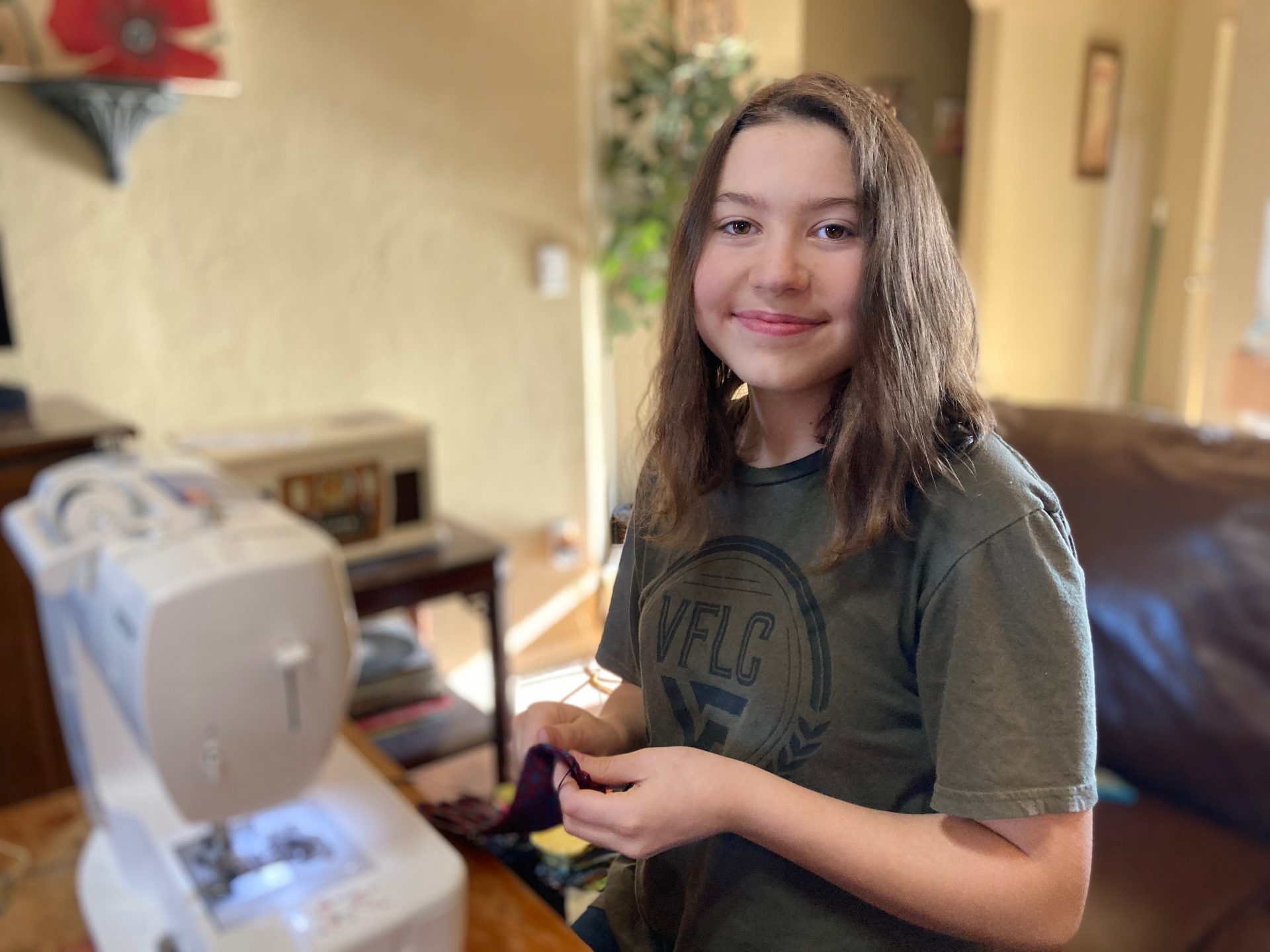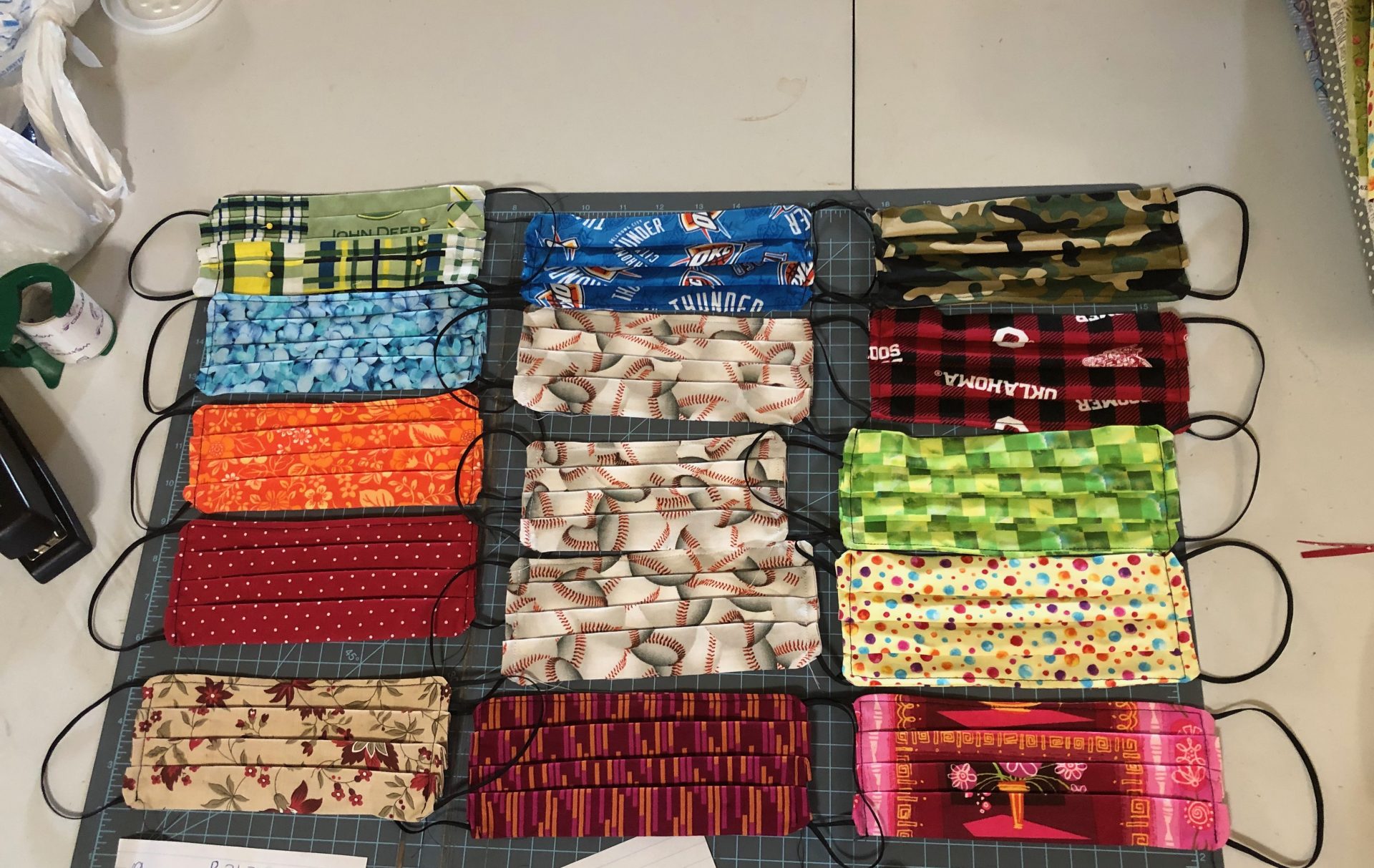
Eighth grader Abby Pike sits at her sewing machine where she's helped assemble more than 700 masks.
Courtesy Abby Pike


Eighth grader Abby Pike sits at her sewing machine where she's helped assemble more than 700 masks.
Courtesy Abby Pike

Courtesy Abby Pike
Masks assembled by Edmond eighth grader Abby Pike with the help of her parents Terry and Joy Pike.
Eighth grader Abby Pike is putting her Christmas present to good use.
She received a sewing machine for the holiday last year. And amidst the COVID-19 global pandemic she and her family have spent their days and evenings sewing.
So far, they’ve sewed about 700 masks. They’ve used social media to help distribute them to people who need them through donations and sold some as well.
“It just brightens my day to see that I’m making an impact,” Pike said.
Pike is involved in Edmond’s Cheyenne Middle School’s Family, Career and Community Leaders of America student organization. And she said many of her friends know a little about sewing, however most students her age and even many adults don’t know even how to sew a button on, her teacher Kendall Wildman said. Wildman teaches family and consumer sciences at Cheyenne.
Family and Consumer Science teachers have seen a sudden spike in a need for the skills they teach during the COVID-19 pandemic. The need for teaching the subject, which has evolved from the days when it was home economics and designed to prep women for home life, has been magnified by stay at home orders, Wildman said.
The demand for mask-making, she said, will even make her flip her curriculum moving forward.
“Sewing is the first thing I’ll be teaching when we come back in the fall,” she said.

Courtesy Marsha Swift
Marsha Swift with her Basic Clothing Construction construction class at UCO.
Marsha Swift is an adjunct professor who teaches clothing construction classes at the University of Central Oklahoma.
She has been teaching family and consumer sciences for more than four decades, mostly in Edmond Public Schools.
In her basic clothing construction class, she’s taught foundational sewing technique sto her students. That’s on top of teaching them about quality clothing construction.
“Repairing and maintaining your own clothing is so important,” Swift said. “In my lifetime, there are just so many things I’ve done with sewing.”
One of her students, sophomore Cameron Durham, also made a video for public distribution to show everyday people how to make a mask.
Swift is teaching two classes at UCO this semester, and between them both her students have sewed more than 100 masks.
She started sewing for the volunteer group 405 Mask Makers after being referred by her neighbor.
That organization has put together more than 16,500 masks for local frontline workers and others in need.

Courtesy Sonya Davis
Sonya Moore-Davis and her 16-year-old son Bryson Davis. The pair used a design from West Virginia University to make masks.
Outreach educators like Sonya Moore-Davis, a 4-H educator at Langston State University, are trying to get mask resources out to the public.
Davis and her 16-year-old son sew masks together. And she wants other parents and their children to sew as well.
Moore-Davis is a resource for 4-H volunteers and families around the state, and she used her coordination position to get a mask design out to people. She’s shared a mask-making template from West Virginia University on social media and with others involved in the organization.
And like Wildman, Moore-Davis said in the future she’s going to put sewing machines on Langston’s campus to good use with students in an effort to promote the art.
“Once we are able to safely return to campus, I plan to offer sewing classes for youth to continue learning to make masks,” she said.